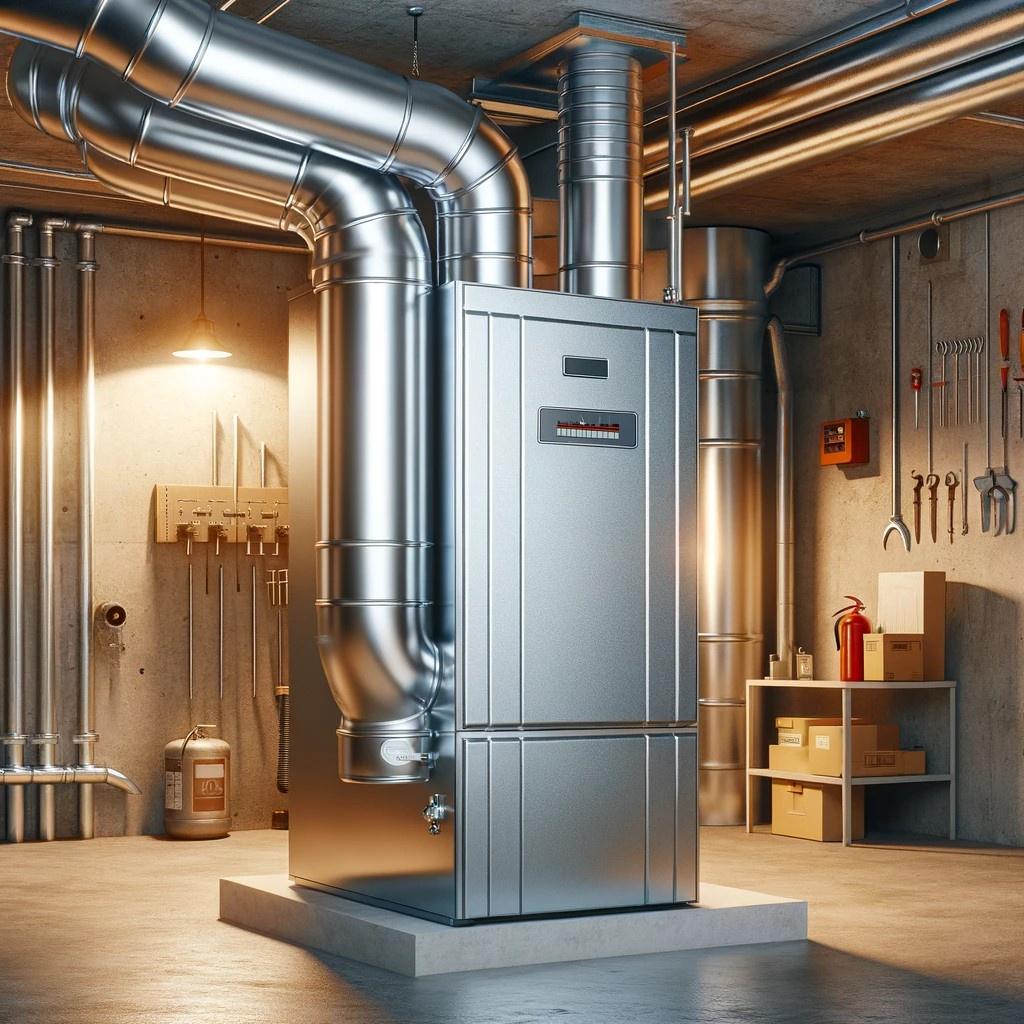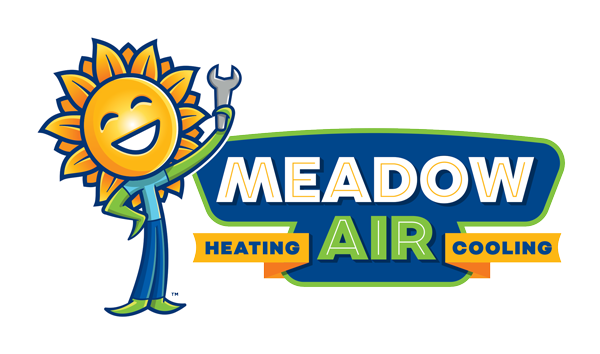What Is a Furnace?
Key Takeaways
- Furnaces consist of a burner, heat exchanger, blower motor, and thermostat that work together to keep a home warm.
- Furnaces utilize various energy sources such as gas, oil, or electricity
- Common furnace types include gas (efficient and lower operating costs), electric (simpler and quieter), and oil (used where gas isn’t available).
- Furnaces provide heat through combustion in the burner, transferring heat via a heat exchanger, and circulating warm air using a blower fan, all regulated by a thermostat.
- Modern furnaces, particularly ENERGY STAR-certified ones, deliver high efficiency, making them cost-effective, and can last 15 to 20 years with proper maintenance.
- Routine upkeep, including yearly inspections, regular filter changes, and annual tune-ups, is essential to keep the furnace running smoothly and safely.
- When buying a new furnace, determine the right size with contractor assistance, compare furnace types and features, and obtain multiple quotes to ensure energy efficiency and appropriate installation.
Heating up your home should be easy and efficient, right? Well, that’s exactly what a furnace offers. Whether it’s powered by gas, oil, or electricity, a furnace is perfect for cozy, comfortable warmth that fills every room evenly.

Let’s take a look at how a furnace works and discover why it could be the ideal heating solution you’ve been searching for.
What’s a Furnace?
A furnace is a heating system that generates and circulates warm air to heat a home. It consists of several main components:
- The burner – uses gas, oil, electricity, or propane to produce heat.
- The heat exchanger – transfers heat from the burner into the air. It is usually made of steel or aluminum.
- The blower motor – pushes the heated air through ductwork to distribute it throughout the home. The motor powers a fan that blows air across the heat exchanger to warm it up.
- The thermostat – controls the furnace by sensing the air temperature and signaling the system to turn on or off to reach the desired temp.
Types of Furnaces
There are several main types of furnaces used to heat homes:
- Gas Furnaces: The most common type, these use natural gas to produce heat. They are known for their efficiency and lower operating costs.
- Electric Furnaces: These utilize electric heating elements to warm the air. While electric furnaces are generally more expensive to operate, they are often simpler and quieter.
- Oil Furnaces: Less common, these burn oil to generate heat. They are typically used in areas where natural gas is not readily available.
How Furnaces Work
Furnaces heat homes through a process called combustion and heat exchange. Here’s how it works:
- The furnace has a burner that mixes air and fuel, usually natural gas or propane. When ignited, this mixture combusts to create flames.
- These flames heat up a metal heat exchanger inside the furnace. The heat exchanger transfers the heat from the flames to the air in your home’s ductwork without letting combustion gases escape.
- A blower fan pushes the heated air from the furnace through ducts and into different rooms. This warm air heats your home.
- A thermostat regulates the whole process. It senses the current room temperature and tells the furnace to turn on if more heat is needed or off once the desired temperature is reached.
Benefits of Using a Furnace
The following are some benefits of using a furnace.
Effiecient
Furnaces are known for their efficiency. Modern furnaces, especially those that are ENERGY STAR certified, really make the most out of the fuel they burn, whether it’s natural gas, oil, or propane. This means you get a lot of heat for your buck, which can really help in keeping those heating bills manageable during the colder months.
Built to Last
Another big plus is the reliability of a furnace. They’re built to last and can keep your home warm for 15 to 20 years, sometimes even longer with good maintenance. So, once you have a furnace installed, you can pretty much count on it to keep chugging along for years to come.
Warms Up Every Room
Furnaces also do a great job at heating your entire home evenly. Unlike some other types of heaters that might warm one room super well but leave another chilly, a well-maintained furnace connected to a well-designed duct system can keep the entire place comfortable. No need to pile on blankets in one room while you’re sweating in another.
Smart Heat Control
If you’re someone who’s big on home automation, many modern furnaces can be integrated with smart home systems. This means you can control your heating remotely from your smartphone or even set up automatic schedules based on your daily routine. This is extremely convenient for managing your home’s comfort and energy use.
Furnace Maintenance
Proper maintenance is essential for keeping your furnace running efficiently and safely. Here are some key maintenance tasks to perform regularly:
Annual Inspections
It’s recommended to have your furnace professionally inspected and serviced once a year. A technician will check components like the blower motor, heat exchanger, burners, venting, gas lines, and more. They can spot issues before they lead to breakdowns or dangerous situations.
Filter Changes
Furnace filters should be checked monthly and changed as needed, at least every 3 months. Dirty filters reduce airflow, making your system work harder and shortening its lifespan. Replacing filters regularly improves efficiency and indoor air quality.
Cleaning and Tune-Ups
An annual tune-up and cleaning goes hand-in-hand with the inspection. The technician will clean key parts like the blower motor, burners, and heat exchanger. They’ll also check and adjust components to optimize performance. This helps ensure reliable heating and efficiency.
Regular furnace maintenance prevents problems, improves safety, and can extend the life of your system. Follow the manufacturer’s maintenance guidelines as well. Taking good care of your furnace saves money over the long run.
How to Select a New Furnace
When it’s time to purchase a new furnace, there are several key factors to consider:
Determine Needed Size
First, you’ll want to determine the appropriate size furnace for your home. A furnace that is too small won’t be able to heat your home adequately, while one that is oversized will lead to energy inefficiency.
Work with a Meadow Air contractor to calculate the proper BTU output based on the size of your home, insulation, and climate. They will determine the optimum furnace capacity to heat your space efficiently.
Compare Types and Features
Make sure to compare different furnace types like natural gas, propane, electric, or oil-fired units. Look at key features like efficiency ratings, blower speeds, warranty coverage, smart technology, etc.
Higher efficiency models like ENERGY STAR certified furnaces may have a higher upfront cost but can lead to significant energy savings over time. Consider noise levels and any venting requirements as well.
Get Multiple Quotes
Be sure to get quotes from 3-5 HVAC contractors before selecting a new furnace. Compare their bids based on the furnace brand, size, any installation costs, and warranty coverage.
Ask what is included and make sure you get all details in writing. Choosing the right contractor is important for proper installation and future servicing.
Wrap Up
A furnace isn’t just a heating solution, it’s a smart investment for any homeowner. With top-notch efficiency, longevity, and the ability to heat every nook and cranny of your home, it stands out as a reliable choice.
So if you’re thinking about a new furnace, need a tune-up, or are considering an upgrade, give us a call to start with a free consultation.
